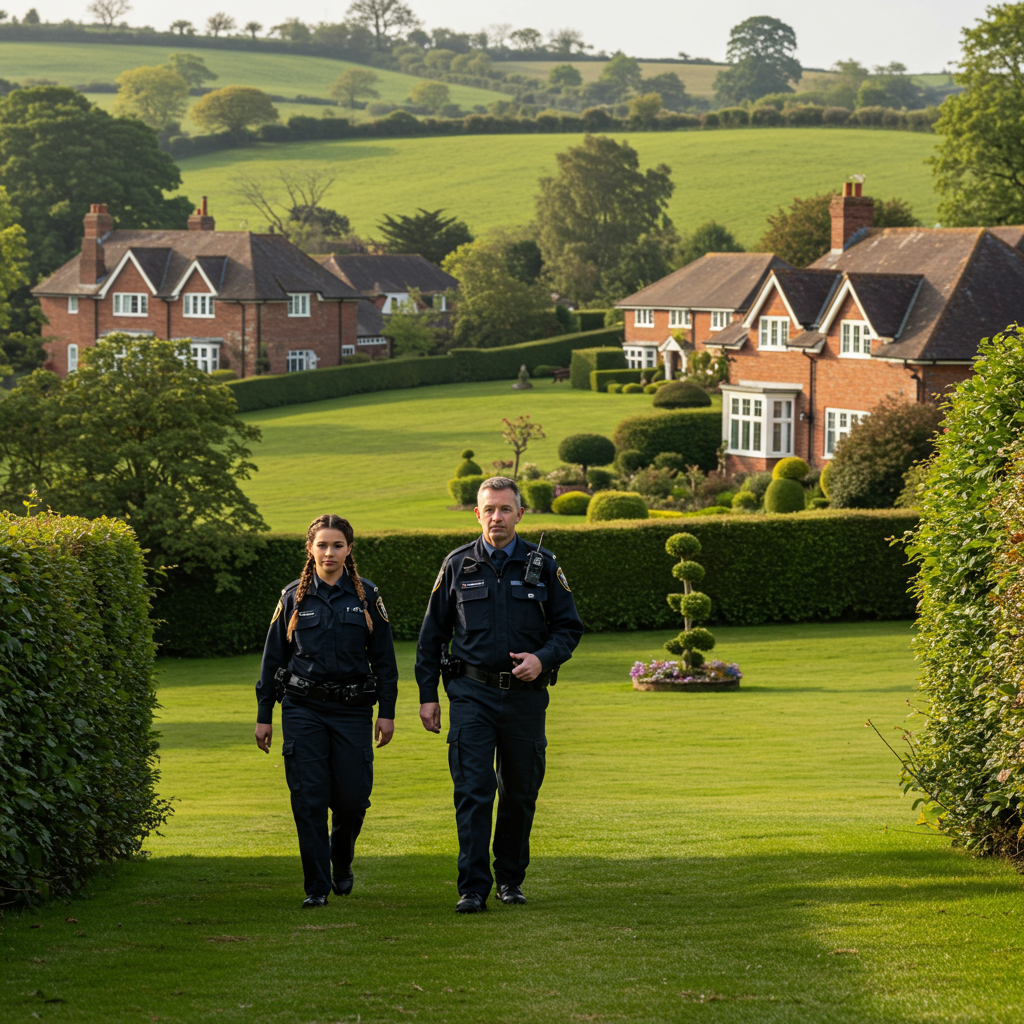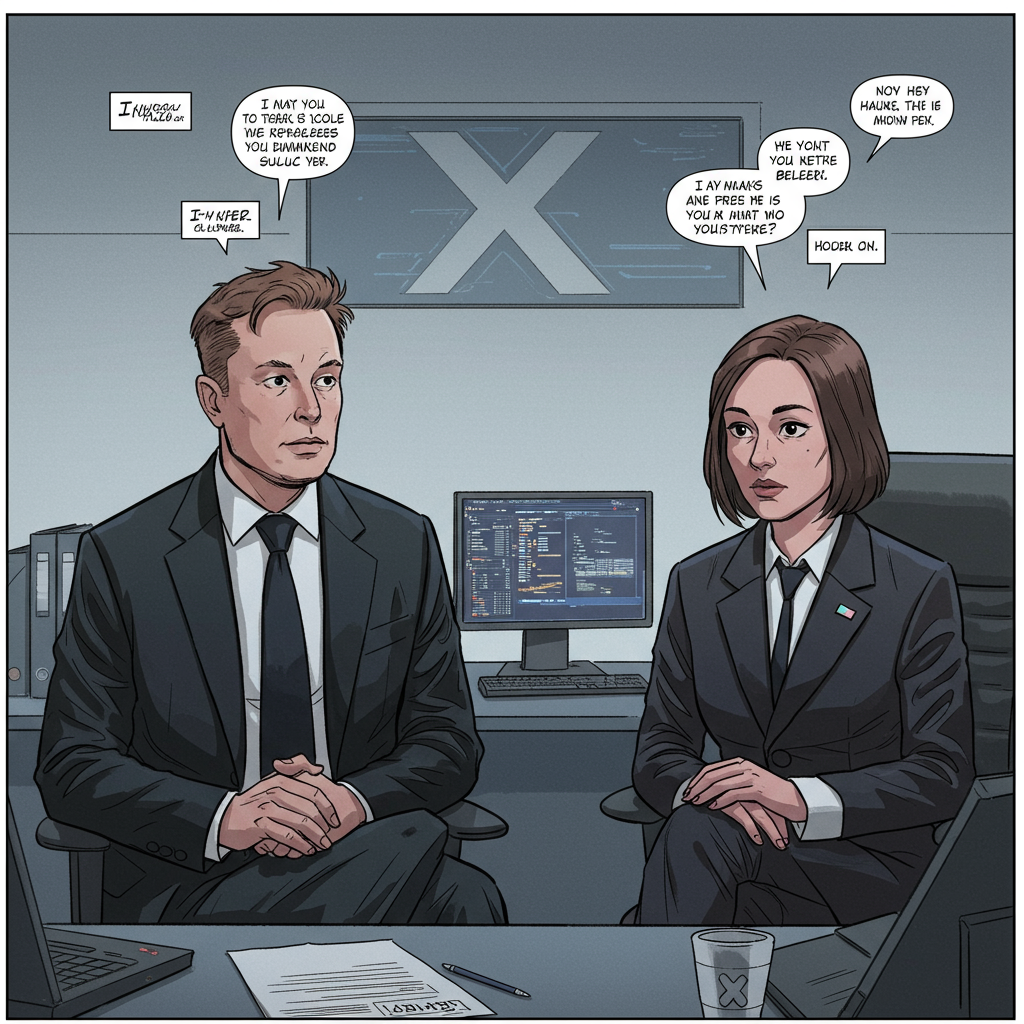The Rise of Private Policing: Why Wealthy UK Families are Paying for Patrols
Picture the scene: sweeping green hills, elegant homes, perfectly manicured lawns. It looks idyllic, straight out of a storybook. Yet, in areas like rural Hertfordshire, this tranquil facade hides a growing anxiety about crime, leading some residents to adopt a controversial solution: hiring their own private security force.
Increasingly across the UK, wealthy families are pooling resources to pay for patrols by firms employing ex-police or army personnel. One such company, Blueline Security, operates cars deliberately painted with blue and yellow stripes to resemble official police vehicles – a visual deterrent designed to make potential criminals think twice. Inside, guards like Robert, a 14-year police veteran, are equipped with walkie-talkies and even trained dogs, though they are careful to distinguish themselves from official constables.
For families willing and able to pay, the cost can be significant – reportedly around £1,500 per household per year in some areas. But for many, this expense is considered a “lifeline.”
Filling a Perceived Gap
Why are people turning to private patrols? Many customers voice a strong sense that the public police service is no longer able to provide the presence and prompt response they feel is necessary, particularly in rural locations.
This sentiment reflects broader public concerns. Recent surveys show declining confidence in local police forces, with a significant percentage of adults expressing little to no confidence. Experts and police leaders themselves point to increasing strain on police resources. While officer numbers have recently risen after years of decline, demands on police time have exploded, driven by complex issues like online fraud and a greater focus on domestic abuse.
Furthermore, challenges within the public system extend beyond just frontline presence. Reports highlight systemic issues contributing to perceived ineffectiveness and further eroding trust, such as criminal cases collapsing due to lost or mismanaged evidence – a problem exacerbated by resource constraints and the difficulty of handling vast amounts of digital material. Amid ongoing debates about police funding, some police chiefs warn that current budgets may still be insufficient to maintain necessary levels of neighbourhood policing.
The “Two-Tier” Society Concern
While customers see private security as a necessary supplement, critics argue this trend is creating a worrying “two-tier” system. In this emerging scenario, the wealthy can essentially buy enhanced protection, leaving less affluent communities more vulnerable.
Former senior police figures voice fears about the fundamental principle of equal access to law enforcement being undermined. As one former chief superintendent put it, those living in areas where they cannot afford private security services should not be left feeling less safe. They see the growth of private security correlating with pressures on public police as a deeply concerning development.
Limited Powers, Potential Confusion
Crucially, despite appearances, private security guards possess no more legal power than any other member of the public. Their ability to detain a suspect is limited to a citizen’s arrest, applicable only for serious “indictable” offences. Attempting an arrest for a less serious crime could land the guard in legal trouble themselves. This limitation means guards often act primarily as a deterrent or simply call the police when they encounter a crime they cannot legally handle, as one guard discovered when encountering suspected drug dealing.
The police-like appearance of some private firms also raises concerns about public confusion. Will people mistake guards for police officers, rely on their advice, or be unsure of their authority? Experts stress the importance of a clear distinction between public police officers and private security personnel.
Accountability Questions
Another key difference lies in accountability. Public police forces are subject to government inspection and independent investigation of serious complaints. Private security firms, while licensed, face less rigorous oversight, primarily limited to the potential revocation of their license.
Despite these concerns, proponents argue that private security already handles a significant amount of “policing” in commercial settings like shopping centres and hospitals, often effectively. Some firms report developing increasingly constructive relationships with local police forces, although challenges remain regarding formal intelligence sharing.
What Does the Future Hold?
The work of ‘private bobbies’ currently represents only a small fraction of overall policing in the UK. However, experts suggest that the prevalence of this model in residential areas will largely depend on the ability of public police forces to regain and maintain public confidence. If resource pressures continue and trust remains low, it seems increasingly likely that more communities, where financially viable, will explore private options to supplement public services.


